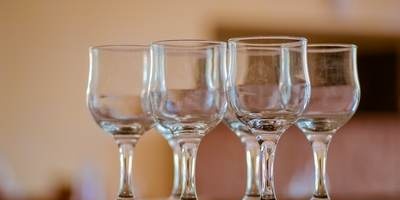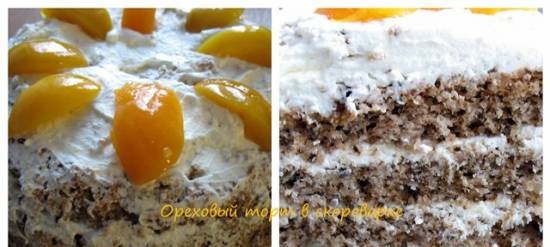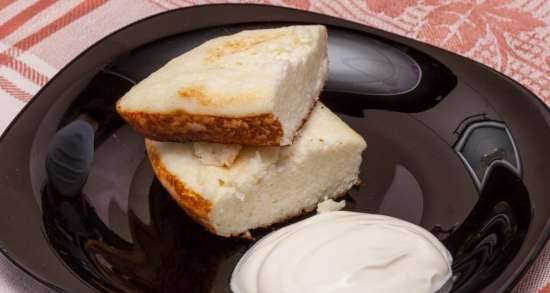|
 The shine of glassware, crystal, porcelain and metal products, pots increases the appetite and authority of the hostess. There is a separate place for each type of dish, protected from dust and stray insects. It's not a secret for anyone that any dishes are washed after each use. Rinse ceramic plates, glass and crystal items with warm water and laundry soap or any special product. The shine of glassware, crystal, porcelain and metal products, pots increases the appetite and authority of the hostess. There is a separate place for each type of dish, protected from dust and stray insects. It's not a secret for anyone that any dishes are washed after each use. Rinse ceramic plates, glass and crystal items with warm water and laundry soap or any special product.
Soak porcelain tea utensils in soda water with the addition of citric acid, wipe with a soft sponge and soap and rinse. The dark plaque from tea and coffee will disappear. A pinch of dry mustard will remove all unpleasant odors from fish, beer, garlic. When washing dishes with gilding and crystal, do not use very hot water, it is washed off and becomes cloudy. All transparent objects are not dried, they are wiped to a shine with a cloth made of natural plant fiber.
Aluminum cookware is durable and versatile, gradually disappearing from use. In such pans, quick cooking is good: boiling milk, cooking vegetables. It is not recommended to leave for storage until full use, it gives a sour taste and smell. It is easy to wash dishes with soap, metal brush, washcloth. Remove dark deposits with a rag dipped in vinegar, boil water and vinegar inside or citric acid.
Long-used items: ducklings, frying sheets can still be saved, shine and novelty. Place in a warm solution: 80 grams of silicate glue, 100 grams of washing soda, 10 liters of water. Boil for 30 - 45 minutes. Glue and soda can be replaced with laundry soap by cutting into small pieces. After the procedure, cool the dishes, clean them with a hard washcloth, the plaque can be easily removed.
 Enameled dishes are aesthetic and hygienic. Proper use preserves the enamel. The coating does not tolerate temperature extremes; it cracks and breaks. Harsh blows lead to holes in the pan. It is best to temper a new saucepan: boil water and soda in it 40 grams per 1 liter. Carbon deposits can form on the enamel during cooking. It should not be scraped, but soaked first. Then remove with a sponge with baking soda, soap, mustard. Enameled dishes are aesthetic and hygienic. Proper use preserves the enamel. The coating does not tolerate temperature extremes; it cracks and breaks. Harsh blows lead to holes in the pan. It is best to temper a new saucepan: boil water and soda in it 40 grams per 1 liter. Carbon deposits can form on the enamel during cooking. It should not be scraped, but soaked first. Then remove with a sponge with baking soda, soap, mustard.
Nickel-plated items are cleaned with vinegar and table salt 20/10 grams. Copper, brass, cupronickel products are given shine by the composition: 30 grams of ammonia, 15 grams of chalk, 50 grams of water. 1/1 gruel mixture of chalk or tooth powder, rinse in soapy water. Soak in a warm solution of 20% photographic hyposulfite, 100 grams per 500 grams of water. Wipe well with a cloth, remove water. Soapy water with ammonia refreshes silver items. A sliced onion head will update the gilded knives and forks.
Scale spoils the mood. Traditionally, remove with a soda composition and boiling, 40 - 50 grams of soda per 1 liter of water. Boil for at least 30 minutes, drain the water. Fill the dishes with hot water, add 40 grams of vinegar per 1 liter of water, boil for at least 30 minutes. Wash the surface with soap and water, loose plaque will come off well.
Plastic dishes. These are bright vases, sugar bowls, breadbaskets, kits for bulk products... All items should be used strictly as intended. Do not store acidic food, do not use items labeled "for technical purposes". It is easy to clean with water and soap.
Chesmer L.A.
|
 The shine of glassware, crystal, porcelain and metal products, pots increases the appetite and authority of the hostess. There is a separate place for each type of dish, protected from dust and stray insects. It's not a secret for anyone that any dishes are washed after each use. Rinse ceramic plates, glass and crystal items with warm water and laundry soap or any special product.
The shine of glassware, crystal, porcelain and metal products, pots increases the appetite and authority of the hostess. There is a separate place for each type of dish, protected from dust and stray insects. It's not a secret for anyone that any dishes are washed after each use. Rinse ceramic plates, glass and crystal items with warm water and laundry soap or any special product.






